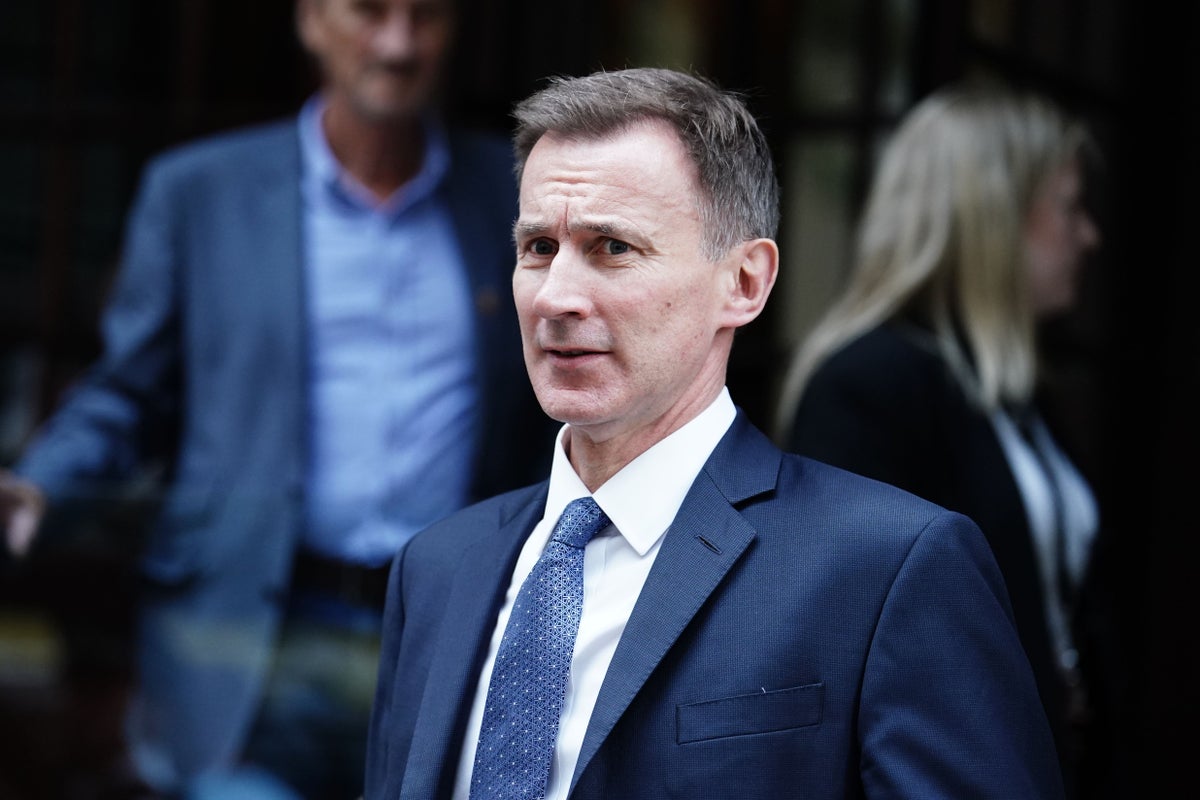
Chancellor Jeremy Hunt welcomed some “good news” for the economy as the latest official figures showed that UK wages are outpacing inflation for the first time in nearly two years.
The Office for National Statistics (ONS) said that regular earnings rose by a near record 7.8 per cent in the three months to August.
It means that wages are now rising faster than prices for the first time since October 2021, a period which has seen Britons struggling with the cost of living crisis.
It will come as a relief to workers who have seen their pay packets eroded by soaring prices and for Rishi Sunak – who pledged at the start of 2023 to halve inflation by the end of the year.
“It’s good news that inflation is falling and real wages are growing, so people have more money in their pockets,” said Mr Hunt. “To keep this progress, we must stick to our plan to halve inflation.”
Revised figures from the ONS revealed that annual growth in regular pay excluding bonuses exceeded CPI inflation by 0.1 per cent in the previous three months to July, having initially estimated flat real earnings growth.
Wages are now surging by record levels seen outside of the pandemic-skewed era, with regular pay jumping by an upwardly revised high of 7.9 per cent in the three months to July, according to the ONS.
Inflation is also easing back, falling to 6.7 per cent in August, having reached a 41-year high of 11.1 per cent last October, and with official figures on Wednesday expected to show another decline to 6.6 per cent.
Sunak and Hunt under pressure to cut inflation and to cut taxes— (Downing Street)
The Unite trade union said the rise in real wages will be “small respite” for many. “The real value of wages has been eroded over more than a decade,” said general secretary Sharon Graham.
She said the latest data suggesting will give hard-working families “some small respite from the damage that has been wrought on household incomes by years of economic incompetence and mismanagement.”
But there was more mixed news on the wider employment sector, with provisional real-time figures estimating that UK workers on payrolls fell by 11,000 month-on-month to 30.1 million in September.
The ONS also revised down its estimate for the previous month, to a fall of 8,000 payroll workers in August compared with July against the 1,000 decrease initially reported.
Vacancies also dropped to 988,000 in the three months to September, down by 43,000 on the previous quarter and marking the 15th drop in a row. Compared with a year earlier, vacancies were 256,000 lower between July and September.
It comes as the Institute for Fiscal Studies warned that the UK economy is in a “horrible fiscal bind” as it heads for recession increase public spending to offer a boost.
The IFS warned that Britain will slump into a “moderate” recession in the first half of 2024, as the struggle for growth remains while borrowing costs stay elevated.
Samuel Tombs at Pantheon Macroeconomics said the slight easing in the pace of wage growth should enable interest rate-setters at the Bank of England to hold off from further rises.
“Signs that wage growth is losing momentum should persuade the MPC to keep Bank Rate at 5.25 per cent again next month,” he said. He added the Bank is likely to hold rates at 5.25 per cent until next spring “and then to reduce it to about 4.5 per cent by the end of 2024”.







